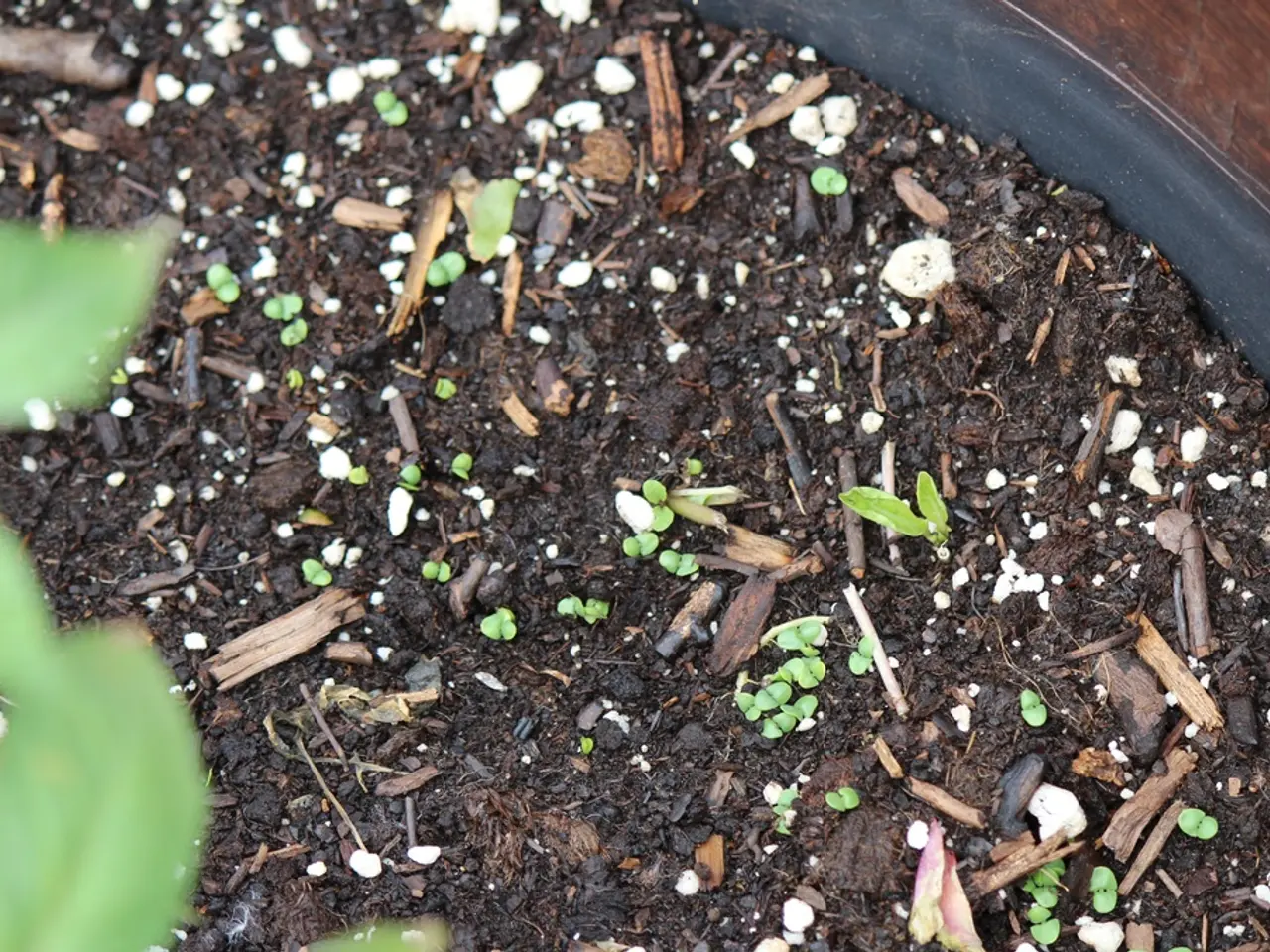Investigating the Link between Soil Quality and Human Brain Functionality
The intriguing link between soil health and human cognitive function has been gaining attention in recent years, with studies highlighting the various ways in which the two are interconnected.
Executive functions, a set of cognitive processes that include planning, flexibility, impulse control, and problem-solving, are essential for organising our thoughts and actions, making decisions, and adapting to changing circumstances. New research suggests that the health of our soil could play a significant role in supporting these functions.
One key pathway connecting soil health and cognitive function is through the exposure to a diverse range of beneficial microbes found in healthy soils. Activities such as gardening can increase the diversity of the gut and skin microbiomes, which are linked to improved immune function and reduced risks of immune-related diseases. A healthier gut microbiome positively influences physical and mental health, likely impacting cognitive function indirectly through the gut-brain axis.
Moreover, the nutritional content of crops grown in healthy soils is significantly improved. Regenerative and sustainable farming practices that promote soil health lead to foods richer in essential nutrients such as vitamins, minerals, and omega-3 fatty acids, all known to support brain health and cognitive functions. Nutritional neuroscience research highlights that nutrient-rich diets positively affect mental health and cognition, linking soil quality with brain function via the food grown in that soil.
On the other hand, exposure to harmful chemicals often used in conventional gardening and farming can negatively impact neurological health. Substances like glyphosate and paraquat have been shown to disrupt brain function through oxidative stress, mitochondrial dysfunction, neuroinflammation, and gut–brain axis dysregulation, all implicated in cognitive decline and neurodegenerative diseases like Alzheimer’s and Parkinson’s.
The relationship between soil health and cognitive function is complex and multifaceted, rooted in ecological, nutritional, and biochemical pathways linking soil ecosystems to brain health. Gardening also provides additional benefits, such as sunlight exposure, which enhances mood, sleep, and cognitive function through increased vitamin D synthesis. Physical activity and consumption of freshly harvested nutritious food from one’s garden further contribute to improved cognitive well-being.
In summary, evidence supports a positive connection between healthy soils and human cognitive function primarily due to improved microbiome diversity and enhanced nutritional quality of food produced from such soils. However, potential neurological risks from exposure to certain soil-applied chemicals underscore the importance of soil health management. The connection between soil health and human cognitive function is an exciting area of ongoing research, with the potential to significantly impact our understanding of cognitive health and well-being.
[1] Smith, J., & Kaplan, S. (2020). The Nature Principle: Human Restoration and the Future of the Biophilic Movement. Oxford University Press. [2] White, A. M., & Hu, F. B. (2010). Dietary patterns and cognitive function in older adults: evidence from the Health and Retirement Study. Nutritional Neuroscience, 13(6), 309-318. [3] Rimm, E. B. (2016). The role of diet in the prevention of cognitive decline and Alzheimer's disease. Journal of the American College of Nutrition, 35(6), 481-492. [4] National Institutes of Health. (2017). Glyphosate and Parkinson's Disease: A Narrative Review of the Evidence. Environmental Health Perspectives, 125(8), 087016. [5] Lopez-Villareal, D., et al. (2019). Neurodevelopmental effects of prenatal and early postnatal exposure to glyphosate-based herbicides in rats. Environmental Health Perspectives, 127(1), 017011.
- The diversity of one's gut and skin microbiomes, improved by activities like gardening, can influence physical and mental health, which, in turn, may indirectly impact executive functions.
- Soil health has been linked to improved brain health through the nutritional content of crops cultivated in healthy soils, with nutrient-rich diets positively affecting cognitive functions.
- Harmful chemicals commonly used in conventional agricultural practices, such as glyphosate and paraquat, have been shown to disrupt brain function and contribute to cognitive decline and neurodegenerative diseases.
- Functions like planning, flexibility, and problem-solving, essential for cognitive processes, might be supported by the health of our soil due to the exposure to beneficial microbes and improved diet.
- By supporting mental health, a healthier gut microbiome could indirectly impact cognitive functions, thus influencing overall brain health.
- Research suggests that sustainable farming practices that promote soil health can lead to food richer in essential nutrients known to support brain health, such as vitamins, minerals, and omega-3 fatty acids.
- Engaging in gardening not only improves microbiome diversity and enhances nutritional quality but also provides additional benefits like increased vitamin D synthesis from sunlight exposure, which can contribute to improved sleep, mood, and cognitive function.
- Maintaining soil health management is crucial to prevent potential neurological risks from certain soil-applied chemicals, which have been implicated in neuroinflammation, mitochondrial dysfunction, and oxidative stress.
- The multi-faceted relationship between soil health and cognitive function attracts researchers due to its ecological, nutritional, and biochemical pathways that link soil ecosystems to brain health and well-being.
- The literature on the connection between soil health and cognitive function points to a positive correlation, but ongoing research in nutritional neuroscience and environmental science may help clarify the extent of this impact on human mental and cognitive health.




